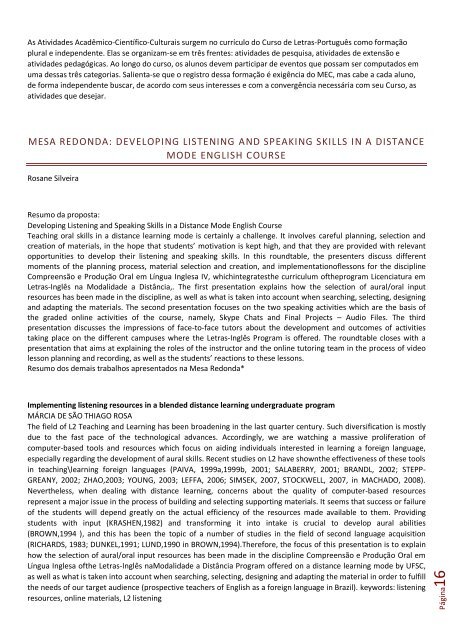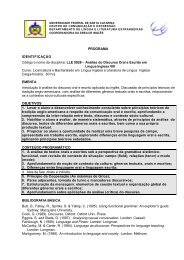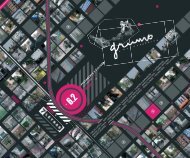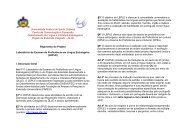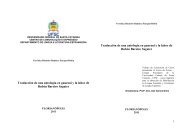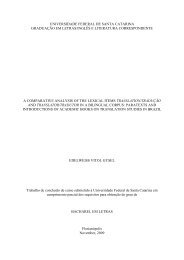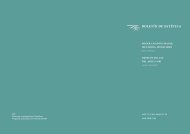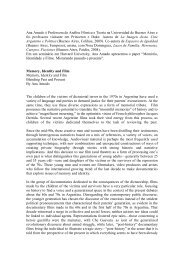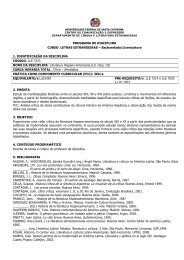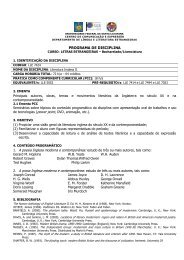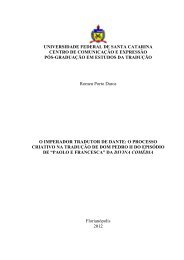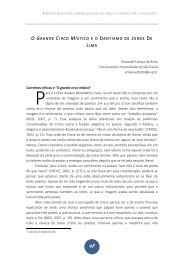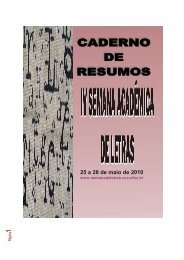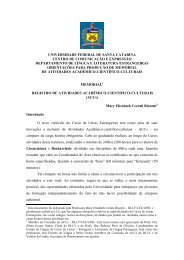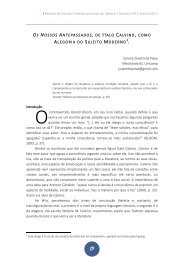Mesas-Redondas 2011 - Semana de Letras - UFSC
Mesas-Redondas 2011 - Semana de Letras - UFSC
Mesas-Redondas 2011 - Semana de Letras - UFSC
Create successful ePaper yourself
Turn your PDF publications into a flip-book with our unique Google optimized e-Paper software.
Página16<br />
As Ativida<strong>de</strong>s Acadêmico-Científico-Culturais surgem no currículo do Curso <strong>de</strong> <strong>Letras</strong>-Português como formação<br />
plural e in<strong>de</strong>pen<strong>de</strong>nte. Elas se organizam-se em três frentes: ativida<strong>de</strong>s <strong>de</strong> pesquisa, ativida<strong>de</strong>s <strong>de</strong> extensão e<br />
ativida<strong>de</strong>s pedagógicas. Ao longo do curso, os alunos <strong>de</strong>vem participar <strong>de</strong> eventos que possam ser computados em<br />
uma <strong>de</strong>ssas três categorias. Salienta-se que o registro <strong>de</strong>ssa formação é exigência do MEC, mas cabe a cada aluno,<br />
<strong>de</strong> forma in<strong>de</strong>pen<strong>de</strong>nte buscar, <strong>de</strong> acordo com seus interesses e com a convergência necessária com seu Curso, as<br />
ativida<strong>de</strong>s que <strong>de</strong>sejar.<br />
MESA REDONDA: DEVELOPING LISTENING AND SPEAKING SKILLS IN A DISTANCE<br />
MODE ENGLISH COURSE<br />
Rosane Silveira<br />
Resumo da proposta:<br />
Developing Listening and Speaking Skills in a Distance Mo<strong>de</strong> English Course<br />
Teaching oral skills in a distance learning mo<strong>de</strong> is certainly a challenge. It involves careful planning, selection and<br />
creation of materials, in the hope that stu<strong>de</strong>nts’ motivation is kept high, and that they are provi<strong>de</strong>d with relevant<br />
opportunities to <strong>de</strong>velop their listening and speaking skills. In this roundtable, the presenters discuss different<br />
moments of the planning process, material selection and creation, and implementationoflessons for the discipline<br />
Compreensão e Produção Oral em Língua Inglesa IV, whichintegratesthe curriculum oftheprogram Licenciatura em<br />
<strong>Letras</strong>-Inglês na Modalida<strong>de</strong> a Distância,. The first presentation explains how the selection of aural/oral input<br />
resources has been ma<strong>de</strong> in the discipline, as well as what is taken into account when searching, selecting, <strong>de</strong>signing<br />
and adapting the materials. The second presentation focuses on the two speaking activities which are the basis of<br />
the gra<strong>de</strong>d online activities of the course, namely, Skype Chats and Final Projects – Audio Files. The third<br />
presentation discusses the impressions of face-to-face tutors about the <strong>de</strong>velopment and outcomes of activities<br />
taking place on the different campuses where the <strong>Letras</strong>-Inglês Program is offered. The roundtable closes with a<br />
presentation that aims at explaining the roles of the instructor and the online tutoring team in the process of vi<strong>de</strong>o<br />
lesson planning and recording, as well as the stu<strong>de</strong>nts’ reactions to these lessons.<br />
Resumo dos <strong>de</strong>mais trabalhos apresentados na Mesa Redonda*<br />
Implementing listening resources in a blen<strong>de</strong>d distance learning un<strong>de</strong>rgraduate program<br />
MÁRCIA DE SÃO THIAGO ROSA<br />
The field of L2 Teaching and Learning has been broa<strong>de</strong>ning in the last quarter century. Such diversification is mostly<br />
due to the fast pace of the technological advances. Accordingly, we are watching a massive proliferation of<br />
computer-based tools and resources which focus on aiding individuals interested in learning a foreign language,<br />
especially regarding the <strong>de</strong>velopment of aural skills. Recent studies on L2 have shownthe effectiveness of these tools<br />
in teaching\learning foreign languages (PAIVA, 1999a,1999b, 2001; SALABERRY, 2001; BRANDL, 2002; STEPP-<br />
GREANY, 2002; ZHAO,2003; YOUNG, 2003; LEFFA, 2006; SIMSEK, 2007, STOCKWELL, 2007, in MACHADO, 2008).<br />
Nevertheless, when <strong>de</strong>aling with distance learning, concerns about the quality of computer-based resources<br />
represent a major issue in the process of building and selecting supporting materials. It seems that success or failure<br />
of the stu<strong>de</strong>nts will <strong>de</strong>pend greatly on the actual efficiency of the resources ma<strong>de</strong> available to them. Providing<br />
stu<strong>de</strong>nts with input (KRASHEN,1982) and transforming it into intake is crucial to <strong>de</strong>velop aural abilities<br />
(BROWN,1994 ), and this has been the topic of a number of studies in the field of second language acquisition<br />
(RICHARDS, 1983; DUNKEL,1991; LUND,1990 in BROWN,1994).Therefore, the focus of this presentation is to explain<br />
how the selection of aural/oral input resources has been ma<strong>de</strong> in the discipline Compreensão e Produção Oral em<br />
Língua Inglesa ofthe <strong>Letras</strong>-Inglês naModalida<strong>de</strong> a Distância Program offered on a distance learning mo<strong>de</strong> by <strong>UFSC</strong>,<br />
as well as what is taken into account when searching, selecting, <strong>de</strong>signing and adapting the material in or<strong>de</strong>r to fulfill<br />
the needs of our target audience (prospective teachers of English as a foreign language in Brazil). keywords: listening<br />
resources, online materials, L2 listening


